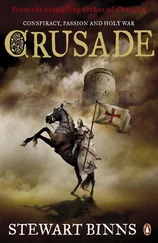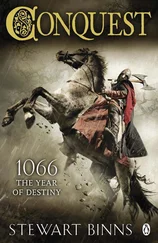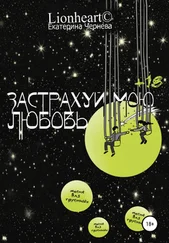CONVENTUAL PRIORESS
A conventual prioress, or prior, is the independent superior of a monastery that is not an abbey and is therefore called a priory.
CORDWAINER
A cordwainer is a shoemaker/cobbler who makes fine soft leather shoes and boots. The word is derived from cordwain , or cordovan , the leather produced in Cordoba, Spain. Historically, there was a distinction between a cordwainer, who made shoes and boots out of the finest leathers, and a cobbler, who repaired them.
CORSELET (CORSELETTE)
Now an item of female underwear, the corselet was originally a piece of armour, covering the torso, made of leather or mail – chain or lamellar. The origin of the English word comes from cors , an Old French word meaning ‘bodice’.
CRUMHORN
The crumhorn is a musical instrument of the woodwind family, most commonly used during the Renaissance period. The name derives from the German krumhorn meaning ‘bent horn’. This relates to the Old English crump meaning ‘curve’, surviving in modern English in ‘crumpled’ and ‘crumpet’ (a curved cake).
CUSPIDOR
A spittoon, from the Latin conspuere , from spuere (to spit).
DANEGELD
The Danegeld (or ‘Danish tax’, literally ‘Dane money’) was a tax raised to pay tribute to Viking raiders and save a land from being ravaged. It was called the ‘geld’ or ‘gafol’ in eleventh-century sources; the term Danegeld did not appear until the early twelfth century. It was characteristic of royal policy in England during the ninth to the eleventh centuries, collected both as tributary – to buy off the attackers – and as stipendiary, to pay the defensive forces.
DANELAW
The Danelaw is an historical name given to the part of England in which the laws of the Danes held sway and dominated those of the Anglo-Saxons (in contrast with ‘West Saxon law’ and ‘Mercian law’). The areas that comprised the Danelaw are in northern and eastern England. The origins of the Danelaw arose from the Viking expansion of the ninth century, although the term was not used to describe a geographic area until the eleventh century.
DESTRIER
A Norman warhorse, often called the Great Horse. Modern shire breeds like the Percheron and Suffolk Punch may descend from destriers, but they may not have been as large as today’s shire horses. In fact, a destrier was probably not a breed, just the name for a horse bred and trained for war.
DONJON
See ‘motte and bailey’.
DORYLAEUM, BATTLE OF
A major battle of the First Crusade (the Great Crusade) fought between the Christian army of the Latin Princes and the Seljuk Turks. It was fought on 1 July 1097, in the north-west of Anatolia, as the crusaders began their long march to Palestine.
DWALE
Dwale was a medieval anaesthetic. There were many versions, but most contained bile, opium, lettuce, bryony, mandrake and hemlock. There are records of dwale in numerous literary sources, including Shakespeare’s Hamlet , and John Keats’s poem ‘Ode to a Nightingale’.
ELY, SIEGE OF
The Siege of Ely was the last redoubt of the English Revolt against Norman rule, in 1069. By 1071 only a small number of survivors, led by Hereward of Bourne, who later became better known as Hereward the Wake, remained besieged by King William at Ely, at that time an island in the shallow waters of the fens. William’s siege was successful in the autumn of 1071. Most of the defenders were killed, while a few survivors are thought to have escaped into the fens or the wildwood; all became legends.
EUNUCH
A eunuch was a person who had been castrated early enough in life for it to have major hormonal consequences. Castration was carried out so that he might perform specific social functions. The practice was well established in Europe among the Greeks and Romans. In the late Roman Empire, the Emperors Diocletian and Constantine were surrounded by eunuchs for activities like bathing, hair cutting, dressing, and many bureaucratic functions. Eunuchs were thought to be loyal and indispensable and enjoyed great influence at court. At the Byzantine imperial court, there were a great number of eunuchs employed in domestic and administrative functions and they had their own hierarchy.
EUSKARA
The Basque name for the Basque language of south-western France and north-eastern Spain.
EXCALIBUR
Excalibur is the legendary sword of King Arthur, sometimes attributed with magical powers or associated with the rightful sovereignty of Great Britain. The sword has long been associated with the Arthurian legend. In Welsh, the sword is called Caledfwlch. In Geoffrey of Monmouth’s History of the Kings of Britain, he says the sword was forged in Avalon and Latinizes the name ‘Caledfwlch’ as Caliburnus. When Monmouth’s work was interpreted in Europe, writers altered the name further until it finally took on the popular form Excalibur.
In Perceval by Chrétien de Troyes (late twelfth century), Gawain carries Excalibur: ‘for at his belt hung Excalibur, the finest sword that there was, which sliced through iron as through wood’. If the story of Richard the Lionheart’s gift of Excalibur to King Tancred of Sicily is to be believed, its whereabouts remain a mystery. Tancred died in 1194. When the Holy Roman Emperor, Henry VI, invaded the island later that year, he ordered Tancred’s reliquary and tomb to be opened and their treasures removed. Twenty packhorses of gold and silver, jewels and silks, tapestries and carpets were found and sent to Trifels Castle, in Germany. The treasure included the Sicilian coronation robes, which were used in the ensuing centuries by the Holy Roman Emperors and are now on display in Vienna. Excalibur was not mentioned among the treasure, and to this day Sicilians still believe that it is buried in a secret location somewhere on the island.
EXTREME UNCTION
The anointing of the sick or dying carried out in extremis as part of the Last Rite of passage. The Last Rites traditionally include three elements: penance, unction (anointing) and receiving the Eucharist (Christ’s Sacrament) in order to prepare the dying person for the next life.
FARIS
A Muslim/Arab cavalryman, usually carrying a status similar to the European knight.
FITZ
A prefix to patronymic surnames of Anglo-Norman origin. This usage derives from the Norman fiz or filz (son of) which was coupled with the name of the father (for example, FitzGilbert, meaning ‘son of Gilbert’), as in the Scandinavian tradition of adding -son behind the father’s name, and the Gaelic traditions ‘Mac’ and ‘O’.
FLETCHER
A fletcher is a maker of arrows. The word is, via Old French, related to the French word flèche , meaning ‘arrow’; the ultimate root is the Frankish fliukka .
FONTEVRAUD ABBEY
The abbey was originally the site of the graves of King Henry II of England, his wife Eleanor of Aquitaine, their son King Richard I of England, their daughter Joan, their grandson Raymond VII of Toulouse, and Isabella of Angoulême, wife of Henry and Eleanor’s son King John. However, it is thought that there is no longer a corporal presence of Henry, Eleanor, Richard or the others on the site. Their remains were probably destroyed during the French Revolution, but their tombs and effigies remain.
FUTUWWA
An Arabic term that has similarities with chivalry and virtue. It was also a name of ethical urban organizations or ‘guilds’ in medieval Muslim realms that emphasized honesty, peacefulness, gentleness, generosity, hospitality and avoidance of complaint in life. In modern-day dialects of Arabic (for example, in Egypt) the term is sometimes used for youths who do quasi-chivalrous acts such as helping others resist intimidation by rival groups.
Читать дальше












